Table of Contents
Key Takeaways
- Ashwagandha: An Ayurvedic herb effective in reducing anxiety by lowering cortisol levels.
- Bacopa Monnieri: An adaptogen useful for anxiety and improving memory consolidation during REM sleep.
- Melatonin: A hormone aiding in sleep regulation, effective in improving sleep quality.
- Magnesium: A vital mineral enhancing sleep quality, mood, and cognitive functions.
- Valerian: is a GABA transaminase inhibitor which makes more efficient use of GABA already in your brain.
Have you ever put off making a decision on something until the following day? The seed of an idea was there. But you decided to “sleep on it”.
And the next morning, whatever it was you were contemplating, the solution was ‘plain as day’.
It turns out we have the science to explain this phenomena.
Over a century of research has established the fact that sleep benefits memory.[i]
There’s nothing quite like a full deep sleep. And waking refreshed the next day.
We spend a third of our life sleeping. During that time between sunset and sunrise and while we sleep, our body recuperates and restores itself. Systems are repaired and prepared for the following day.
And we now know that quality sleep is crucial for optimal memory consolidation. The best nootropic stack in the world will not work if you don’t get enough sleep.
This post is about how sleep works in your body and brain. With a clear understanding on how sleep works, and the problems that arise without it, we dive into how to fix insomnia.
And the safest way for better sleep and lucid dreams is selecting the right nootropic stack.
Sleep is such an important part of our life and an optimized brain that a book could be written on this subject. And several have been written. This post distills all the important information down into usable nuggets.
Use the Table of Contents to skip to the sections that interest you most. And come back for more detail later.
How sleep works
Sleep is critical for optimal cognition and well-being. Let’s take a couple of minutes to understand the actual stages and mechanism of sleep.
Knowing how we fall asleep and stay asleep may help us identify some of the nootropics that could support healthy sleep.
Sleep mechanisms
Deep in your brain, the hypothalamus contains clusters of cells that receive information about light exposure from your eyes. The hypothalamus works with your brain stem to produce GABA. Which helps to reduce stress and arousal levels in this area of your brain.
Circadian rhythm
Your pineal gland is located deep within the center of your brain. Named for its pinecone shape, this gland receives signals from the hypothalamus to synthesize and secret the hormone melatonin. Which plays a role in your circadian rhythm and sleep cycle.[ii]
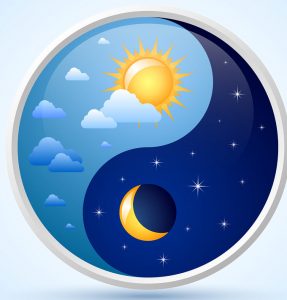 Your circadian rhythm or body’s biologic clock synchronizes with environmental cues like light and temperature. But also seems to work even in the absence of external cues.
Your circadian rhythm or body’s biologic clock synchronizes with environmental cues like light and temperature. But also seems to work even in the absence of external cues.
This natural process can get disrupted by exposure to artificial light (i.e. cellphone screens), medical conditions, medications, stress, and food and drink.
Your circadian rhythm can also get out of whack by flying to a different time zone. Or from working the night shift.
Sleep-wake homoeostasis
The neurotransmitter adenosine is created over the course of your day as a natural by-product from the formation of adenosine triphosphate (ATP). ATP is the fuel that is produced in your mitochondria and is used to power each of your cells.
The current theory is this buildup of adenosine from creating ATP during the day leads to the eventual need to slow down and replenish these stores of energy through sleep.
This natural homeostatic sleep drive reminds your body that it needs sleep. And even regulates sleep intensity depending on the amount of natural stress you’ve put on your system.
Stimulants like caffeine act as an adenosine antagonist which inhibits its sleepiness effect.
Sleep stages
We have two basic types of sleep: rapid eye movement (REM) sleep, and non-REM sleep. Non-REM sleep has three different stages. Each stage is linked to specific brain waves and neurotransmitter activity.
Stage 1 non-REM sleep is where you changeover from being awake to asleep. This stage ideally lasts only a few minutes where heartbeat, breathing, and eye movements slow. And muscles relax. Brain waves slow to theta brain waves, punctuated occasionally by brief bursts of alpha brain waves.
Stage 2 is the next stage of non-REM sleep where alpha brain wave activity dies down. In this stage your heartrate and breathing slow even more. And muscles relax even further. Body temperature drops and eye movements stop.
Stage 3 non-REM sleep is the period of deep sleep that you need so you can wake up refreshed in the morning. This is where slow wave sleep begins. It occurs in longer periods during the first half of the night. You heartbeat and breathing slow to their lowest levels. And your muscles relax to the point where it may be difficult to wake you. Brain waves enter delta activity.
Stage 4 or REM sleep occurs about 90 minutes after falling asleep. Eyes move rapidly from side to side. Brain wave activity varies between theta, alpha and beta brain waves which is closer to sleep onset than that of wakefulness. Breathing becomes faster and irregular. And heartrate and blood pressure increase to near waking levels.
Most of your dreaming occurs during REM sleep, although some can occur during non-REM sleep. Arm and leg muscles become paralyzed which prevents you from acting out in your dreams.
From then on, you spend the rest of your night cycling between stages 2, 3 and REM sleep.
How much sleep do you need?
Need for sleep and sleep patterns change as you age. School-age children and teens need about 9 ½ hours per night. Adults need 7 – 9 hours per night.
But individual sleep needs can vary. And only you will know what is “optimal” by how you feel from day to day. Some are naturally short or long sleepers. This would not be considered a ‘sleep disorder’.
A recent study shows the effect of a good night’s sleep can contribute to your happiness level as much as winning the lottery.
Researchers at the University of Warwick in the UK examined the sleep patterns of 30,594 people for 4 years. The scientists analyzed sleep quantity, quality and the use of sleep medication.
The study showed that not enough sleep or poor quality of sleep had a negative impact on medical conditions and emotional states.
Improvements in sleep quality and quantity, and using less sleep medication, had the same impact as 8-weeks of cognitive therapy.
And study score improvements on feelings of well-being from adequate sleep were equivalent to winning $250,000 in the lottery.[iii]
Sleep as a public health concern
A recent study showed that 70 million Americans have problems sleeping.[iv] But insomnia is not unique to those of us who live in countries like the USA or Canada.
The University of Warwick Medical School in the UK conducted a multi-national study on sleep with nearly 50,000 people. The results closely resemble that of the USA where 17% of the population studied were dealing with sleep problems.[v]
This widespread issue with insomnia led the National Institute of Health in the USA to create a separate division entirely devoted to sleep. It’s called “The National Center on Sleep Disorders Research”.
The Institute works with neuroscientists, cellular and molecular biologists, geneticists, physiologists, neuropsychiatrists, immunologists, pulmonary specialists, cardiologists, epidemiologists, and behavioral scientists.
The Institute was created because sleep problems are now recognized as a serious public health concern. Estimates show sleep disorders in the USA alone adds about $15.9 billion to the national health care bill.
Sleep affects almost every type of tissue and system in your body – from your brain, heart, and lungs to metabolism, immune function, mood, and disease resistance.
Research shows that a chronic lack of sleep, or getting poor quality sleep, increases your risk of disorders including high blood pressure, cardiovascular disease, diabetes, depression, and obesity.
Sleep and learning & memory
Ever noticed after a night of poor quality sleep that your brain doesn’t work as well? Mental tasks are difficult and inefficient. Here’s why…
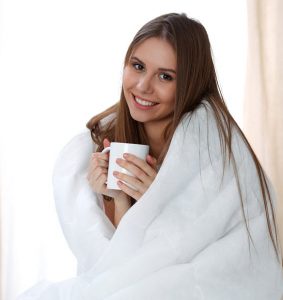 Your experience during the day leads to a progressive increase in synaptic strength in your brain. This is the ‘encoding’ phase of memory formation. Inputs during your day are stored for later ‘consolidation’ during the night while you sleep.[vi]
Your experience during the day leads to a progressive increase in synaptic strength in your brain. This is the ‘encoding’ phase of memory formation. Inputs during your day are stored for later ‘consolidation’ during the night while you sleep.[vi]
But if this strengthening happened continually, your brain would soon become insensitive to new inputs.
Continual inputs would cause neurons to lose their ability to fire selectively. Synapses would lose their integrity and neuroplasticity would be overloaded.
Cellular maintenance and the removal of neurotoxic waste would redline causing an unsustainable level of energy consumption.
Deep sleep is essential for down-regulating synaptic strength. This deep sleep phase is also called slow-wave sleep. It’s key for memory formation and processing. It’s also when your brain goes into maintenance mode after a day of activity.
When your sleep is disturbed during this slow-wave cycle, your synapses cannot rest. Synapses cannot restore themselves in preparation for the next day’s activities. This inhibits neuroplasticity which means learning is no longer possible.[vii]
Recent research has also begun to understand how the last phase of sleep, or REM sleep (dream sleep) is involved in memory. Studies show that REM is needed for several types of memory. Including spatial and contextual memory consolidation.[viii]
Spatial memory is recording information about your environment such as your neighborhood, where you live, or where you buried your food to find the next day.
Contextual memory is the ability to memorize and discern the origin of a specific memory. Including time, place, people or emotion related to that memory.
If your REM sleep is cut short, you’ll not be able to recall where you buried your food. Or who you were with, and why you were with them when you buried it.
Now you know why a poor night’s sleep can severely affect your mental performance the next day. And a good night’s sleep typically results in a happier and more productive day.
ADHD and sleep disorders
I was diagnosed Adult ADD about 10 years ago. But I’ve dealt with sleep problems all my adult life. It never occurred to me until researching this post the association between the two.
If you are ADHD or ADD and have problems going to sleep, and staying asleep, you are not alone.
In 2017, a cross-sectional study of 268 adult ADHD patients was published in the journal Frontiers in Psychology. Of the patients studied, 82.6% reported a lifetime of sleep problems. And 61.4% used hypnotics to help them sleep.
Symptoms reported by Adult ADHD patients included excessive daytime sleepiness, cataplexy, loud snoring, breathing pauses during sleep, restless legs, and periodic limb movements in sleep.
One important thing to note from this study is ADHD stimulant medications were NOT associated with more sleep-related problems.[ix]
If you are a parent with an ADHD child, I realize it will be of little comfort. But you are not alone. One study in 2013 showed that children with ADHD nearly always also dealt with sleep problems.[x]
What I find encouraging in all the research done on ADHD and sleep is that mainstream medicine does not recommend using prescription sleep meds for treating sleep disorders in children.[xi]
The nootropic recommendations later in this post apply to, and work well, for any age group dealing with ADHD, ADD and sleep problems.
Sleep and quality of life
It will come as no surprise that getting enough sleep every night is associated with feelings of a better quality of life.
Researchers analyzed data from 10,654 patients records collected from 2008 – 2010. Quality of life was assessed using the EQ-5D questionnaire which is used to measure health outcome.
The study showed that those who slept less than 6 hours, or more than 9 hours per night experienced a decrease in quality of life. And an increase in depression.[xii]
Dr. Matthew Walker at the University of California – Berkeley notes that “Nearly every disease killing us in later life has a causal link to lack of sleep”. Poor sleep has been linked to Alzheimer’s, heart disease, obesity, diabetes and stroke.[xiii]
Consistently getting a good night’s sleep usually leads to a better day. But not getting quality sleep every night can lead to an early grave.
Sleep and feelings of fear
A very recent study showed that good quality sleep including adequate REM sleep reduces fear.
Researchers at Rutgers University conducted a study indicating that better sleep quality lowers brain activity in regions tied to fear learning. Which ties into the “Sleep and learning & memory” we talked about earlier in this post.
Fear learning is the mechanism where you attempt to predict exposure to threatening situations. So you can react appropriately to preserve your safety.
This study looked at whether a person’s sleep patterns before witnessing a traumatic event would be a good indicator of whether fear memories would be established in the first place.
The study found that more time in REM (dream) sleep dampened activity in the region of the brain associated with fear learning. They also found that REM sleep moderated levels of norepinephrine in the brain. This neurotransmitter is linked to the regulation of the fight-or-flight response.[xiv]
The bottom-line is good quality sleep will make you more resilient to and less susceptible to trauma and fear.
Sleep and sexual satisfaction
Poor sleep quality has a negative effect on your sex life for both men and women of all ages.
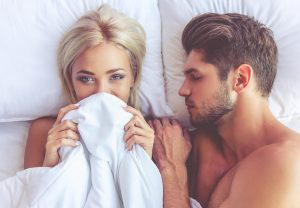 Lack of sleep even in younger men can reduce testosterone levels and completely wipe out sex drive.[xv]
Lack of sleep even in younger men can reduce testosterone levels and completely wipe out sex drive.[xv]
Sleep-deprived women are less likely to have sex than those who have had proper sleep.[xvi]
Sleep deprivation lowers sperm count in men.[xvii]
When you lack sleep or sleep fewer hours, cortisol levels rise.[xviii] Cortisol is your body’s stress hormone. A rise in cortisol negatively impacts sex drive.[xix]
In men, poor sleep quality can result in erectile dysfunction (ED).[xx]
And studies show that shorter sleep duration and higher insomnia scores are associated with decreased sexual function.[xxi]
To sum up, for more and better sex you need plenty of good quality sleep.
Sleep and lucid dreaming
A lucid dream is a dream in which you are fully aware that you are dreaming. And you are able to control the dreamscape.
Many view lucid dreaming as a novelty. And a state that is not easily attained. But some researchers believe that lucid dreaming treatment shows promise in treating chronic nightmares. Including those dealing with Post-Traumatic Stress Disorder (PTSD).
A study conducted at the University of Adelaide in Australia worked with 169 participants split into 3 groups. Each group was assigned a different combination of lucid dreaming techniques.
The 3 main lucid dreaming techniques were; Reality testing, Wake back to bed, and Mnemonic induction of lucid dreams.
- Reality testing involves examining one’s surroundings multiple times throughout the day. And questioning whether one is awake or dreaming.
- Wake back to bed involves going to bed. Waking up after 5 – 6 hours. Staying awake for 10 minutes to an hour. Then going back to sleep. The idea is to launch directly into REM sleep which tends to be the stage involved in lucid dreaming.
- Mnemonic induction of lucid dreams is often combined with the #2 technique. But before going to bed, you repeat a phrase such as “next time I’m dreaming, I will remember that I’m dreaming”.
The study found that the third group which combined all three techniques had a success rate of 17.4% in achieving lucid dreaming over the one week study period.
The study also found that those who reported success using the #3 technique were significantly less sleep deprived the next day. Which indicates that lucid dreaming should not have a negative effect on sleep quality.[xxii]
Lucid dreaming is a technique that can be learned. And certain nootropics have shown promise in achieving this sleep state which I’ll cover next.
Sleeping pills prevent memory formation
We know that quality sleep is required for memory consolidation at the end of every day. But what if we can’t sleep?
When you are exhausted and can’t sleep, it’s tempting to reach for a prescription sleep aid such as Ambien, Sonata and Lunesta.
But many people have reported memory problems while using prescription sleep meds. And science is beginning to understand why.
Drugs like zolpidem (Ambien®) are GABAa receptor agonists that bind to the α-1 subunit, which is believed to be responsible for the drug’s sedative properties.
Turns out this mechanism of action is likely responsible for memory prevention effects as well.[xxiii]
Multiple studies show that hypnotic sleep meds impair memory. But the good news is this impairment of short- and long-term memory are of short duration. Memory consolidation returns to normal once you stop using the meds.[xxiv]
Another sleeping aid option are OTC meds containing diphenhydramine which is an antihistamine used for treating minor pain and itching. A brand name you may be familiar with is Benadryl®.
The problem is any medication that begins with ‘anti’ including antihistamines, antidepressants, antipsychotics, antibiotics, antispasmodics, or antihypertensives is that they negatively affect acetylcholine levels in the brain.
Drugs that prevent acetylcholine action are anticholinergics. Low acetylcholine can lead to brain fog, mental confusion, delirium, blurred vision, memory loss and hallucinations.[xxv]
The final prescription sleeping med people often turn to are benzodiazepines (benzos)a. These meds are used as a sedative, anti-anxiety and for muscle relaxing properties.
Benzos work by enhancing the effect of the major inhibitor neurotransmitter GABA at the GABAa receptor. Similar to meds like zolpidem.
The most noticeable problem associated with benzos are that they interfere with the formation and consolidation of memory.[xxvi]
With all the negative effects on memory caused by pharmaceutical sleep medications, clearly we need a safer alternative. Once again, nootropics come to the rescue.
Best Nootropics for Quality Sleep
One of the primary reasons we need quality of sleep is for learning and memory consolidation. So in the following recommendations, select a nootropic that helps you fall asleep, and another that helps optimize memory.
But how do you know for sure that one or more of these nootropic supplements will actually work for you?
The two factors that most say make the biggest contribution to perceived sleep quality: 1. The number of times a person wakes during the night, and 2. How much time they spent asleep during the previous night.
To get to sleep quicker
Ashwagandha
Ashwagandha – is an ancient Ayurvedic herb with remarkable stress relieving qualities. It helps reduce anxiety and depression in part by reducing the stress hormone cortisol.[xxvii]
Earlier in this post you may recall when talking about sleep and sex that a lack of sleep or sleeping fewer hours increased cortisol levels. Ashwagandha helps reverse this trend by reducing this stress hormone.
Recommended dosage for Ashwagandha is 300 mg 2 – 3-times per day. I recommend the extract called KSM-66®: Pure Nootropics – Ashwagandha (KSM-66®)
Bacopa Monnieri
Bacopa Monnieri – is an adaptogen that helps prevent the chemical and physical effects of stress. Research at Banaras Hindu University in India showed Bacopa Monnieri as effective for anxiety as the benzodiazepine drug lorazepam.[xxviii]
One of the side effects of lorazepam is memory loss. Bacopa Monnieri on the other hand, reduced anxiety while boosting cognition. Research also has shown Bacopa Monnieri improves signaling of electrical impulses between neurons in your brain.[xxix] Improving memory consolidation during REM sleep.
Recommended adult dosage for Bacopa Monnieri extract is 150 – 450 mg per day. I recommend: Mind Lab Pro® (24% Bacopa Monnieri extract).
GABA
GABA – is the major inhibitory or relaxing neurotransmitter in your brain. GABA’s primary role is to keep the major excitatory neurotransmitter glutamate in check.
One study in Los Angeles conducted a randomized, double-blind, placebo controlled trial with 18 patients with sleep disorders. The patients received either a placebo, or Gabadone (a combination of GABA and 5-hydroxytryptophan).
The difference between the two groups of sleep-deprived patients was significant. The Gabadone group fell asleep faster, stayed asleep longer, and had a better quality of sleep than the placebo group.[xxx]
I recommend the patented PharmaGABA® 250 mg before bed: Thorne Research – PharmaGABA-250
Kava
Kava – is an herb that’s native the South Pacific islands. It’s traditionally been used in the islands as a hypnotic, psychotropic, and anxiolytic (anti-anxiety).
California’s Global Neuroscience Initiative Foundation took a look at 24 studies of Kava and other herbal medicines for anxiety. And there was substantial evidence that kava relieved not only anxiety, but also restlessness and insomnia.[xxxi]
Recommended adult dosage for Kava is 250 – 500 mg per day.
Lemon Balm
Lemon Balm – has a long history as a treatment for stress, anxiety, thyroid issues, indigestion, infections, viruses and inflammation. One way Lemon Balm does this is to promote GABA, a glutamate inhibitor in your brain.
Glutamate excites brain cells to act. While this excitation is necessary, too much glutamate results in cell death. Lemon Balm promotes a better balance in glutamate levels, and helps new cell growth. Some users say it works as well as popping a Xanax®.
Recommended adult dosage for Lemon Balm extract 400 mg before bed: Zazzee USDA Organic Lemon Balm Extract
Magnesium
Magnesium – is the 4th most abundant mineral in your body. And critical for optimal cognitive health. It is a cofactor in more than 600 enzymes in your body. But many of us in Western society are living with a magnesium deficiency. And most are unaware of this deficiency.
Magnesium is required for ATP synthesis. ATP (adenosine triphosphate) is the main energy source produced within mitochondria and is used for cellular energy. Without magnesium, your brain cannot produce ATP, and all brain function breaks down.
Most neurohackers report an increased level of focus, energy, memory, and cognitive ability when supplementing with magnesium. You should also experience an improved quality of sleep. And have an overall improvement in mood.
I recommend: Performance Lab® (NutriGenesis®) Magnesium before bed.
Melatonin
Melatonin – is a hormone primarily produced in the pineal gland. Your pineal gland acts as your body’s central clock through its secretion of melatonin. Telling your brain, body and organs when it’s time to be active and when it’s time to rest. This is the reason why melatonin is referred to as the “sleep hormone”.
Melatonin is a powerful sleep aid and is registered as a drug in Europe for that purpose.[xxxii] Study after study shows that melatonin is effective in improving quality of sleep and how fast a person went to sleep.[xxxiii]
Be careful with Melatonin however because everyone reacts differently to this powerful hormone. I’ve personally found that even in small 1 mg doses used every night that it negatively affects my normally cheerful mood the next day.
Tryptophan is a far safer and more effective option for boosting serotonin and melatonin naturally.
Tryptophan
L-Tryptophan – is an essential amino acid and precursor to serotonin, melatonin and niacin (Vitamin B3) in your body and brain. Tryptophan is one of the best natural sleep aids available. Without unwanted side effects. And unlike 5-HTP which tends to lose its effectiveness within 4 – 6 weeks, L-Tryptophan can be used daily and long-term.
L-Tryptophan and serotonin play a significant role in memory. And can have a significant effect on mood as well.
You’ll get better results when supplementing with L-Tryptophan as a sleep aid by stacking it with magnesium and Vitamin B6 (Pyridoxine) because they are required cofactors needed to synthesize serotonin and melatonin.
L-Tryptophan is also a precursor to the synthesis of Vitamin B3 (niacin). So if you don’t have enough niacin in your body, supplementing with L-Tryptophan will not efficiently produce serotonin because it’s being used to produce niacin. Which also depletes stores of the vitamin cofactors Vitamin B1, Vitamin B2 and Vitamin B6.
I find that L-Tryptophan is also a better sleep aid than melatonin. Instead of a darker mood the next day, I wake feeling refreshed and in a cheerful mood for the rest of the day.
I recommend: Performance Lab® Sleep which includes 200 mg Tryptophan taken before bed. And use Performance Lab® (NutriGenesis®) B-Complex during the day.
Better quality sleep
Once you’re asleep you want to stay asleep. And you’ll do what you can for better quality sleep, optimal memory consolidation and better dreams.
Aniracetam
Aniracetam – is a fat-soluble ampakine nootropic in the racetam-class of compounds. And up to 10-times more potent than the original racetam, Piracetam.
Neurohackers use Aniracetam to boost learning and memory. And to relieve anxiety, depression, stress, and for social anxiety.[xxxv] And some report Aniracetam helps promote lucid dreams.
I recommend: Science.bio – Aniracetam for tubs of powder used during the day.
CBD Oil
CBD Oil helps regulate mood by enhancing serotonin and glutamate signaling via 5-HT1A. CBD also enhances GABA which helps reduce anxiety.
I personally discovered that when I added 40 mg CBD Oil to my sleep supplement stack, it helped me sleep through the night.
I highly recommend the CBD Oils, edibles, drinks, topical lotions, and pet products designed and produced by >>> Charlotte’s Web <<<
DMAE
DMAE – naturally occurs in your brain. DMAE as a nootropic has been reported by some neurohackers to improve vigilance, attention, mood and energy while alleviating depression.
DMAE has also been reported to induce lucid dreaming.[xxxvi]
Recommended dosage for DMAE is 100 – 200 mg per day and used during the day with 300 mg CDP-Choline and a high quality Omega-3.
Gotu Kola
Gotu Kola – is one of the most important herbs in the ancient tradition of Ayurvedic medicine. In Bali, Gotu Kola is called “the student herb” because it sharpens the mind. The Balinese also use it to combat senility.
Many say that taking Gotu Kola is like “energizing of the brain”. Particularly during a period of high mental demand. Mental blocks or mental fatigue feel like they’re swept away.
Others report dreams seem more vivid and intense. And Gotu Kola seems to have an anxiolytic (anti-anxiety) effect as well.
Recommended adult dosage for Gotu Kola extract is up to 500 mg per day and used during the day.
Huperzine-A
Huperzine A – is a water-soluble alkaloid nootropic derived from Chinese Club Moss (Huperzia serrata). It is a reversible acetylcholinesterase (AChE) inhibitor. Which means it prevents the breakdown down of acetylcholine (ACh). Boosting short-term memory and long-term brain health.
Research has shown that acetylcholinesterase inhibitors may enhance REM sleep. In one study using the ACh inhibitor donepezil, the percentage of REM sleep and REM density increased. And the researchers found a correlation between memory performance and REM sleep.[xxxvii]
Recommended adult dosage for Huperzine-A is 50 – 200 mcg every second or third day. Do NOT use Huperzine-A every day.
L-Theanine
L-Theanine – is a non-dietary amino acid found in green tea. It is similar to the neurotransmitters l-glutamate and l-glutamine. L-Theanine boosts the neurotransmitters serotonin, dopamine and GABA in your brain. As well as increasing Brain-Derived Neurotrophic Factor (BDNF) and Nerve Growth Factor (NGF).[xxxviii]
L-Theanine improves your quality of sleep. Researchers in Japan gave volunteers 200 mg of L-Theanine daily and recorded their sleep patterns. Enhanced sleep quality, recovery from exhaustion, and feeling refreshed were all enhanced by supplementing with L-Theanine.[xxxix] . I recommend 200 – 400 mg L-Theanine 60 – 90 minutes before bed for better sleep.
Recommended adult dosage for L-Theanine before bed is 300 mg. I recommend: Mind Lab Pro® which contains 100 mg L-Theanine.
Passionflower
Passionflower modulates the levels of GABA in your brain. Passionflower inhibits GABA uptake in synapses without affecting GABA release or GABA transaminase activity.
Researchers at Monash University in Australia had study volunteers use Passionflower tea before bed. The researchers concluded that the consumption of low-dose Passionflower tea resulted in sleep benefits for healthy adults with mild fluctuations in sleep quality.
Recommended adult dosage of Passionflower extract is 200 – 400 mg before bed. I recommend: Nature’s Answer Passion Flower extract
Valerian
Valerian is a GABA transaminase inhibitor which means this supplement makes more efficient use of the GABA already in your brain. It also potentiates the effects of a GABA supplement.
One study done at the University of California in San Francisco did a meta-analysis of 16 clinical trials using Valerian for sleep.
The research team concluded that Valerian is a more attractive option to other sleep agents because of the lack of a ‘hangover effect’ the next day. And overall, patients got to sleep faster and had better quality sleep.
Recommended dosage of Valerian extract for sleep is 300 – 900 mg taken before bed. I recommend: American Standard – Valerian because it is pure, and 3rd party tested with great reviews..
The perfect nootropic sleep stack
If you’re dealing with ongoing problems of insomnia or poor quality sleep. And not waking up feeling refreshed the next day. Nootropics can help.
Each of the nootropics I detailed above have been shown to contribute to improving sleep quality. But it’s up to you to find 3 or 4 that work for you.
Trial and error are the key to success with nootropic supplements. Each of the nootropics I detailed above links through to a full review of that supplement. Pay close attention to the Recommended Dosage and Side Effects for each supplement.
The amount of each supplement you select is important. Remember, “more is NOT better“.
Some of the nootropics in this article are contraindicated with prescription meds. Especially SSRIs, MAOIs, and benzodiazepines. Combining many of the supplements I detailed above with any of these prescription drugs could put you in a coma or cause Serotonin Syndrome. So, please read the Side Effects carefully before using each supplement.
With some dedication and patience you too can have consistent and great quality sleep night after night. And feel amazing the next day.
Note: I’ve had many ask me what I use for sleep every night since I first published this article. And my answer has been; tart cherry juice concentrate (natural source of L-Tryptophan and melatonin), magnesium, L-Tryptophan, Lemon Balm, and L-Theanine. Works like a dream and I’ve been using this sleep stack consistently for over six years.
But I’ve also added Performance Lab® Sleep which contains some of the same sleep ingredients I’ve been putting together myself every evening. Still my favorite sleep stack. But depending on what you choose to add, you could save some money by using this pre-made sleep supplement.

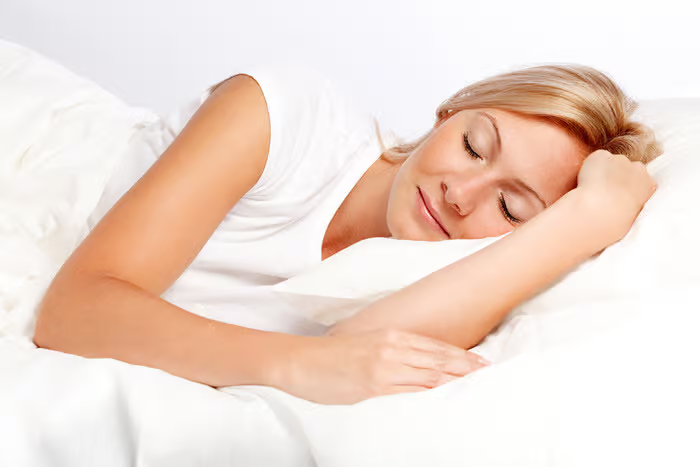
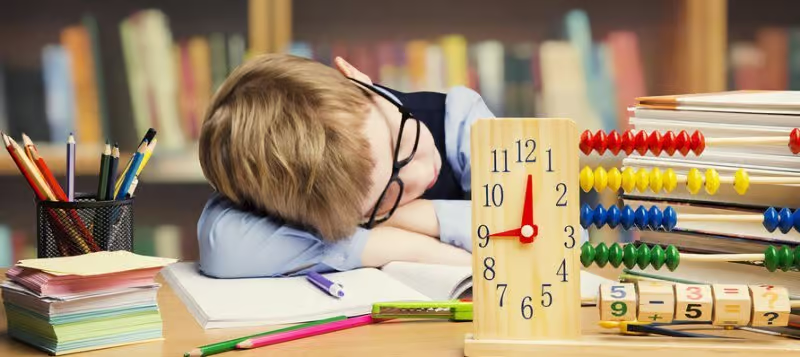
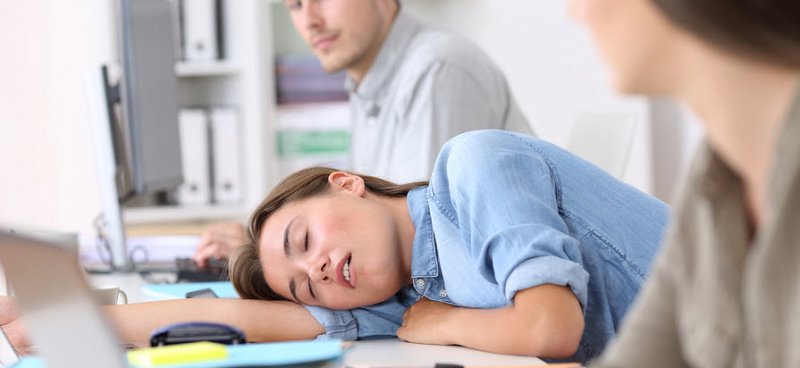
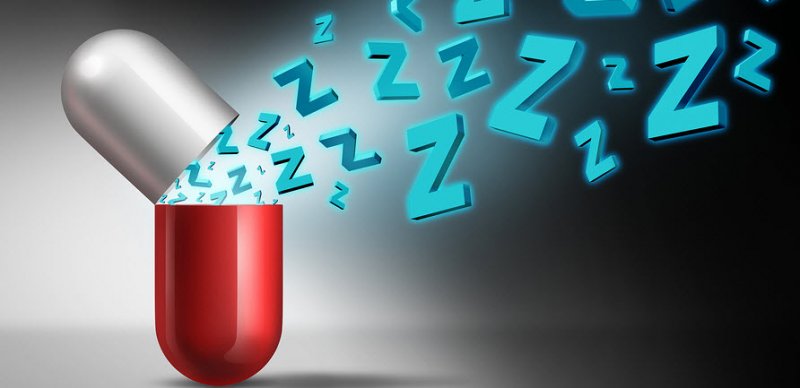





Join The Discussion - 134 comments
Chryssanthi
October 3, 2025
I tried to contact you for a consultation. I put all the data, but when I pressed “schedule event” button nothing happened.
David Tomen
October 4, 2025
Chryssanthi, what country do you live in? Because that may have happened if you selected the wrong option here: https://calendly.com/d/5c4-wg7-qzn. If you do not live in the USA, Canada, or Mexico click the other option and it should open the page you need including scheduling a Zoom call with me.
If that is not the issue it could be a browser setting such as having popups turned off. Let me know if neither suggestion works for and we’ll figure another way to do this.
Mercury Coder
September 20, 2025
This article is incredibly informative and well-written! It deeply explains the science behind sleep and its importance, making it easy to understand. The practical tips and nootropic recommendations are very helpful for anyone struggling with sleep issues.
David Tomen
September 20, 2025
Thank you. There was a ton of research that went into this article.
Megan Ward
May 14, 2025
Any supplement out there to help with snoring? My husband is a long time snorer, but I feel like it’s getting worse. It doesn’t affect his sleep…just mine, even though I’m a pro at earplugs. He does wear the breathe right strips, but they just don’t do enough. Thank you!
David Tomen
May 14, 2025
Megan, I am not an expert in this area but a little research will show you that optimal Vitamin D levels (https://pmc.ncbi.nlm.nih.gov/articles/PMC6118887/) help.
And a BioActive Multivitamin like this one: https://bit.ly/3l9OalB because each vitamin and mineral support various aspect of blood flow, oxygen levels, airway support, etc.
Also 1,000 mg per day DHA (Omega-3).
See my articles on each on this website including these:
https://nootropicsexpert.com/13-vitamins-essential-for-the-optimized-brain/
and this one: https://nootropicsexpert.com/13-minerals-essential-for-the-optimized-brain/
Andy
September 10, 2025
try mouth taping
osman
April 28, 2025
hello david,I have been using paxil for my social anxiety for 6 years and If I use valerian and passion flower toghether,is that ok for me to use this combo for my sleep?
secondly,I have severe social anxiety for many years and I am using paxil.so while I am using paxil,can I use ashwagandha,L-theanine and L-tyrosine together?and what nootropics could you recommend to me for my social anxiety?please,help me..thanks for your support.byee
David Tomen
April 29, 2025
Osman, is your social anxiety controlled by using Paxil? This drug is a potent SSRI and is contraindicated with Passionflower and Valerian. I do not suggest combining these nootropic supplements with Paxil because it could be very dangerous. Serotonin Syndrome is nothing to be messed with because it can kill.
Ashwagandha, L-Theanine, and L-Tyrosine should not be a problem as long as you keep dosages at the lowest recommended level.
Caelon Bennington-Barr
November 24, 2024
Hi David,
is Tart Cherry pure liquid and PharmaGABA safe to take together before bed? I also take Tryptophan, Lemon Balm extract, L-Theanine and magnesium
David Tomen
November 24, 2024
Yes, that’s a great combination for healthy sleep.
alex
October 1, 2024
in the morning and afternoon i take magnesium and lemon balm for my anxiety, which supplement would you recommend for sleep? (i sleep well even without supplement, just wanna improve it)
David Tomen
October 1, 2024
Alex, I usually recommend magnesium before bed because it attaches the same GABAa receptor that Ambien does for sleep. All also recommend 500 mg Tryptophan, 400 mg Lemon Balm extract, 300 mg PharmaGABA, 400 mg L-Theanine, and 20 – 40 mg CBD Oil.
Dale Almond
September 7, 2024
Bouts of Covid have left me with an insomnia problem. I just read your article on sleep, and I am planning to take a number of supplements that look promising. However, I am a bit confused about the DMAE. In the article, it recommends taking 300 mg along with Citicoline and omega 3’s. I already take the Citicoline and high-dose DHA. I randomly saw another article of yours on DMAE, which talks about damage that DMAE can do. I am a person with a number of autoimmune diseases, as well as MTHFR, COMT, and numerous CYP450 mutations so I have to be really careful. What specifically is the damage? Thank you!
David Tomen
September 8, 2024
Dale, I only left DMAE in there because some said it helped with lucid dreams. DMAE is NOT a sleep supplement and I never recommend it you anyone I consult with. I only reviewed it because it is out there and some use it. If you read my review carefully you’ll find DMAE stops choline from entering cells which then theoretically allows more choline to be available for acetylcholine synthesis. But we have far better ways to boost acetylcholine so no one ever need to use DMAE in my opinion.
The sleep stack I use personally includes magnesium Bisglycinate, L-Tryptophan, L-Theanine, Lemon Balm extract, PharmaGABA and CBD Oil and it works great.
Dale Almond
September 9, 2024
Thank you very much! I really appreciate your reply. I’ve been taking both Magnesium glycinate and Magtein, and I’ve recently added L-Tryptophan. I’m going to try a very small dose (50 mg, Swanson) of Bacopa Monnieri, which I MAY be able to tolerate. I’m well aware my options are limited. I can’t take anything that promotes GABA, as well as any kind of endocannabinoid. I’ll look into the lemon balm and see how it aligns with what my genetic status allows. Again, thanks for all the good work that you are doing.